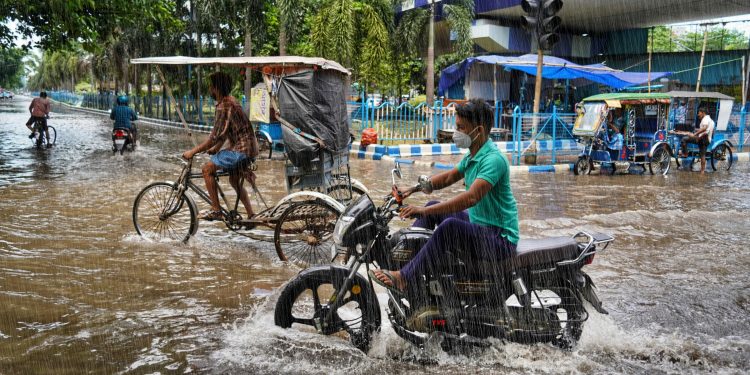Torrential monsoon rains have unleashed chaos across Pakistan’s Punjab province, killing at least 63 people and injuring 290 others in just 24 hours, according to the National Disaster Management Authority (NDMA). Most victims were crushed by collapsing buildings, while others drowned in flash floods or were electrocuted. The death toll from this year’s monsoon season, which began in late June, has now climbed to nearly 180, with more than half of the victims being children.
In Rawalpindi, adjacent to the capital Islamabad, authorities declared a public holiday to keep residents indoors as floodwaters surged. Families living near the swelling Leh Nullah river were ordered to evacuate as rescue teams scrambled to assist those stranded. The floods have disrupted major infrastructure, shutting down expressways across Punjab and causing dozens of flight cancellations and delays at airports.

Emergency Declared as Punjab Braces for More Rain and Flash Floods
Punjab Chief Minister Maryam Nawaz declared a state of emergency in multiple districts, mobilizing government agencies to respond to the crisis. “Government institutions are working with utmost effort,” she posted on X (formerly Twitter), urging citizens to follow safety guidelines. In Chakwal, where 400mm of rain fell in a single day, rescue boats and military helicopters were deployed to search for survivors trapped in submerged neighborhoods.
Pakistan’s Climate Crisis: Why Monsoon Rains Are Growing Deadlier
Pakistan, home to 250 million people, ranks among the world’s most climate-vulnerable nations, caught between extreme heatwaves and devastating monsoons. The country also faces accelerated glacier melt from its 13,000 glaciers, compounding flood risks. In 2022, historic floods submerged a third of Pakistan, killing 1,700 people and causing $30 billion in damages. UN Secretary-General António Guterres had labeled Pakistan a victim of climate injustice, criticizing the global financial system for failing to support recovery efforts.
With more heavy rainfall and flash floods forecast across Punjab this weekend, thousands of rescue workers remain on high alert. The latest disaster raises urgent questions about Pakistan’s disaster preparedness and the global response to climate-induced catastrophes.

















